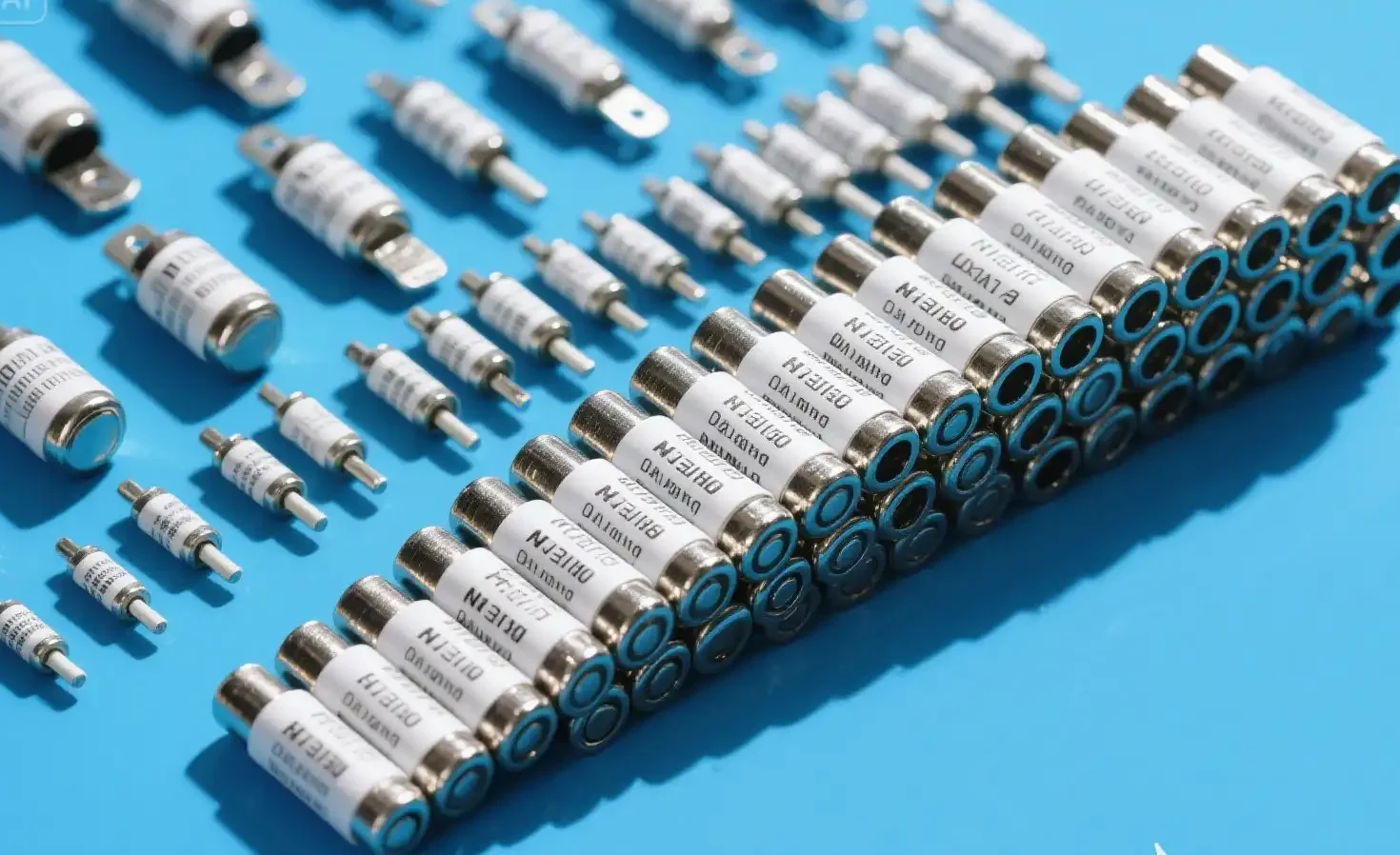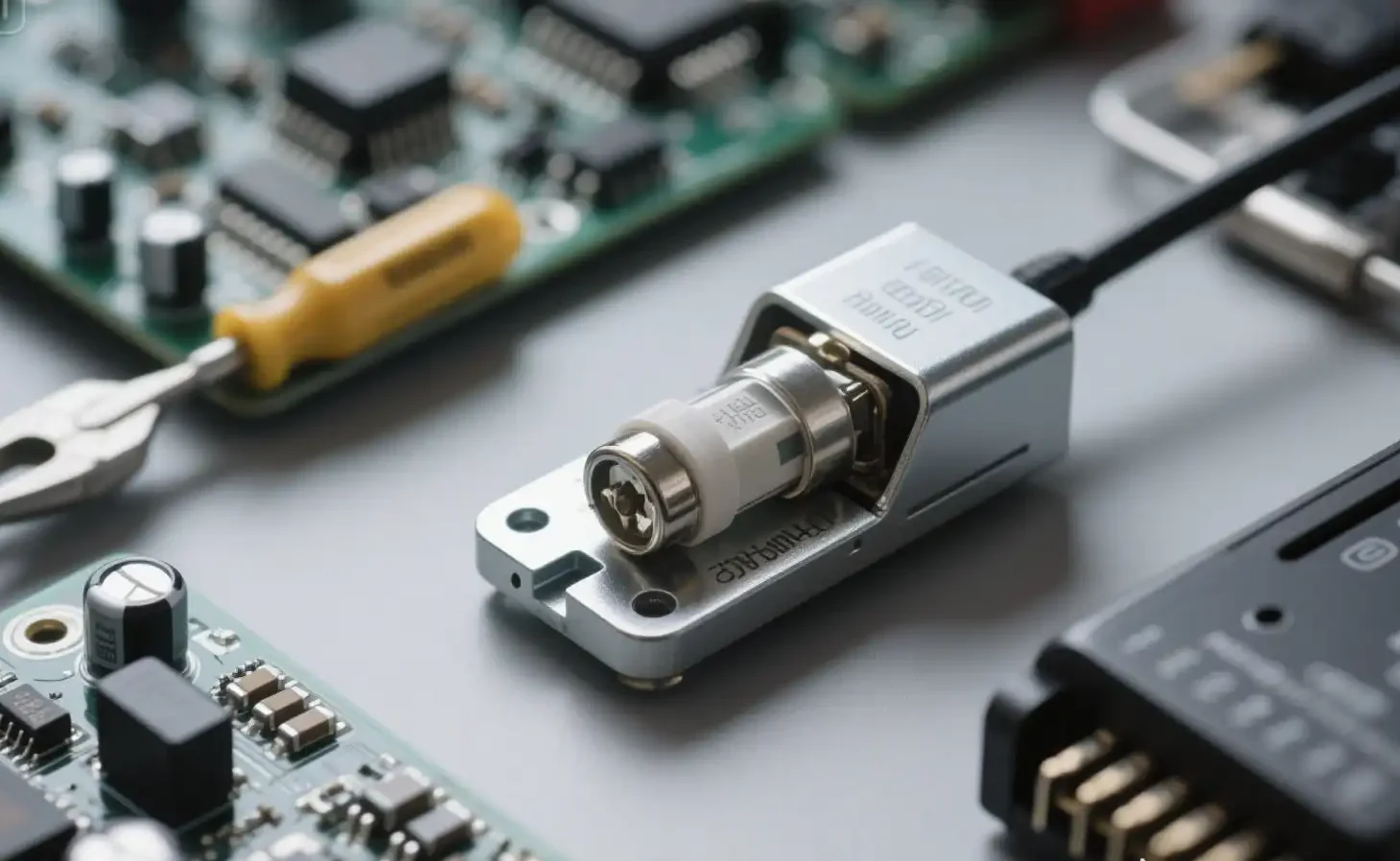A fuse is an important safety component of your solar system. It prevents excessive current from damaging your solar panels or devices. For a 200W solar panel, the size of the fuse is very important. A 25A fuse is often recommended because it provides effective protection and allows electricity to flow properly. Using the correct fuse size keeps your solar system safe and contributes to its longevity.
Key Takeaways
-
A 25A fuse works well for a 200W solar panel.
-
The 1.25x safety rule helps pick the right fuse size.
-
Check and replace fuses often to stop overheating problems.
-
Pick the right fuse type for your system, like blade fuses for small setups or ANL fuses for big systems.
-
Knowing your solar panel’s voltage and current helps choose the right fuse.
Solar panel power corresponding to common fuse sizes
|
Solar panel power |
Typical working current (at 12V) |
Recommended fuse size |
|
100 watts |
8.3A |
10A |
|
200 watts |
16.7A |
25A |
|
300 watts |
25A |
30A |
|
400 watts |
33.3A |
40A |
Why Does Fuse Size Matter for Solar Panels?
Stopping Too Much Current
The fuse size is key to keeping your solar panels safe. If too much current flows, it can overheat and harm parts of your system. A fuse works like a safety switch. It stops electricity when the current goes over its limit.
Inside a fuse, there’s a part that handles a set amount of current. If the current gets too high, this part breaks and stops the electricity. This helps avoid overheating, fires, or damage to your solar panels and wires.
-
Fuses or breakers protect your system from too much current.
-
They keep your solar gear safe, saving you from costly fixes.
Picking the right fuse size keeps your solar system safe from too much current.
Protecting Solar Parts from Harm
Using the right fuse size shields the delicate parts of your solar system. Solar panels, controllers, and batteries can get damaged by too much current. Without a fuse, these parts might overheat and break or stop working.
A fuse’s rating shows how much current it can handle before breaking. For a 200W solar panel, a 25-amp fuse is a good choice. It keeps your system running well and safe from power surges.
The right fuse also reduces wear on your solar gear. This helps your panels last longer and lowers repair costs over time.
Keeping Your System Safe and Lasting Longer
Fuse size affects how safe and long-lasting your solar system is. The right fuse protects against dangers like short circuits or too much current. This makes your solar setup more reliable.
Fuses or breakers are the first defense against electrical problems. They stop wires and connectors from overheating, keeping your system safe. Checking and replacing fuses regularly helps your panels work well and safely.
By focusing on safety, you help your solar system last longer. A system with the right fuses gives steady power for years, making it a smart energy choice.
How to Find the Right Fuse Size for Solar Panels
Knowing Solar Panel Output (Voltage and Current)
To pick the right fuse, know your solar panel’s output. This includes voltage and current. Voltage is the electric force, and current is the flow of electricity in amps. For a 200W solar panel, the output depends on the system setup, like 12V or 24V.
For example, in a 12V system, a 200W panel makes about 16.7 amps. In a 24V system, it produces around 8.3 amps. These are the highest current levels under perfect conditions. The fuse must handle this current without breaking too soon. It also needs to protect the system from too much current.
Always check your panel’s specs to calculate the fuse size. Manufacturers provide details like voltage and current ratings. Use this information to choose the right fuse.
Using the 1.25x Safety Rule
After knowing your panel’s output, use the 1.25x safety rule. This rule helps the fuse handle small current increases without breaking early. It also accounts for temperature and other changes that affect the system.
To find the fuse size, multiply the panel’s max current by 1.25. For example, if the panel makes 16.7 amps:
16.7 amps × 1.25 = 20.875 amps
Round up to the nearest standard fuse size, like 25 amps. This ensures the fuse protects the system while working safely. The 1.25x rule is common in solar setups for safety and efficiency.
Thinking About Wire Size and Voltage
Wire size and system voltage also matter for fuse size. Wires must carry the system’s current safely. Small wires can overheat, lose power, or cause safety problems.
Key points to remember:
-
Choose wire size based on your system’s needs. One size doesn’t fit all.
-
Reduce resistance and voltage drops for better safety and performance.
-
Higher voltages need thicker wires to handle more current.
-
Hot temperatures increase wire resistance, causing voltage drops.
Use a voltage chart to pick the right wire size for your system. Match the wire size with the fuse and system’s max current. This ensures all parts work well together.
By checking these factors, you can pick the best wire and fuse sizes. This keeps your solar system safe, efficient, and long-lasting.
Common Solar Panel Fuse Sizes for 200W Systems
Fuse Size for a 12V System
In a 12V solar system, the fuse size depends on the current. A 200W solar panel makes about 16.7 amps in perfect conditions. To find the right fuse size, use the 1.25x safety rule. This rule helps the fuse handle small current increases safely. For example:
16.7 amps × 1.25 = 20.875 amps
Round this number up to the nearest standard size, which is 25 amps. A 25A fuse is a good choice for most 12V systems.
Tip: If your system has multiple panels connected, adjust the fuse size. For example, in a 2s3p setup, a 20A fuse might work for each string. Always check the fuse rating and your panel’s specs to ensure they match.
Fuse Size for a 24V System
In a 24V system, a 200W solar panel produces about 8.3 amps. Using the 1.25x safety rule, calculate the fuse size like this:
8.3 amps × 1.25 = 10.375 amps
Round this up to a 15A fuse. This size protects the system while letting it work well.
For bigger setups, like those with inverters, the calculation changes. For example, if an inverter needs 2000W at 24V, the current is 83.3 amps. In this case, pick a fuse rated between 105A and 125A, based on the inverter’s continuous current.
|
Calculation Method |
Resulting Fuse Size |
Notes |
|---|---|---|
|
105A to 125A |
Fuse rated at 1.25 to 1.5 times inverter’s current |
|
|
Series vs Parallel connection |
Depends on how solar panels are connected |
Examples of Fuse Types (Blade, ANL, etc.)
When choosing a fuse, think about the type you need. Different fuses work for different uses. Here are some common types:
-
Blade Fuses: Small and easy to replace. Great for small systems or parts.
-
ANL Fuses: Best for high-current uses, like connecting batteries or inverters.
-
Class T Fuses: Used in lithium battery setups. They respond fast and handle high currents.
-
Glass Tube Fuses: Good for low-current circuits. Often found in older systems.
Each fuse type has a specific use and rating. Pick one that fits your system’s voltage and current needs. The right fuse keeps your solar panels and parts safe and working well.
Matching the Fuse to Your Charge Controller
Why Fuse Size Matters for Charge Controllers
The charge controller controls electricity between solar panels and batteries. Using the right fuse size keeps the system safe and working well. The fuse stops too much current from damaging the controller’s parts.
To find the correct fuse size, match it to the controller’s amps. For example, if the controller is 15 amps, use a 15A fuse. To calculate the fuse size between panels and the controller, add up the panel amps. Then, increase the total by 25% for safety. This extra amount handles changes in current from things like temperature.
-
It keeps current safe for wires and parts.
-
Use this formula: Short-circuit current (A) × number of panels in parallel × 1.25 × 1.25 = Fuse Size (A).
Choosing the right fuse protects the controller and keeps the system running well.
Making Sure Fuses Work with Wires and Connectors
Fuses need to match your wires and connectors to work right. The wire size, connector type, and fuse rating must fit together. Wires should carry current without overheating or losing power.
Rules like IEC 61238-1-3 and IEC 60840 help guide wire and connector choices. For example, medium voltage cables need connectors that pass short-circuit tests. Aluminum wires need special connectors to fit their size and shape.
|
Evidence Description |
Details |
|---|---|
|
IEC 61238-1-3 Standard |
For connectors on medium voltage cables up to 30 kV. |
|
Short-Circuit Tests |
Needed for connectors to stop overheating. |
Pick fuses that match your wires and connectors. This avoids problems and keeps your solar system working well.
Checking and Caring for Fuses
Fuses need regular checks to work properly. Look for wear, rust, or damage. Replace bad fuses to stop system problems.
Make sure the fuse’s current rating fits your system. Heat and humidity can weaken fuses over time. Regular checks find problems early before they get worse.
-
Clean fuse holders to stop dirt buildup.
-
Test fuses often to make sure they work during overcurrent.
-
Keep extra fuses ready for quick fixes.
Taking care of fuses helps your solar system last longer and work better.
Picking the right fuse size is very important for safety. For a 200W solar panel, a 25A fuse is a common choice. However, you should calculate the exact size for your system. Fuses and breakers stop too much current from harming your solar setup. They prevent overheating and protect your system from damage.
To choose the right fuse, think about current, voltage, and resistance. Higher voltage makes current stronger, so fuse size matters more. Grounding helps with safety, but fuses are your first protection. Always follow safety rules and check your fuses often. This keeps your solar system working well and safely.
FAQ
What happens if you use the wrong fuse size for your solar panels?
Using the wrong fuse size can cause problems. A fuse that’s too small might blow often and stop power. A fuse that’s too big won’t protect your solar panels from too much current. This could harm your system parts.
Can you use a higher fuse rating than recommended?
No, using a higher fuse rating is not safe. It might not stop too much current, which can damage your system. Always use the fuse size that matches your system’s needs for safety.
How often should you check the fuses in your solar system?
Check your fuses every few months. Look for damage, rust, or wear. Regular checks keep your solar panels safe and working well.
Do all solar systems require fuses?
Yes, all solar systems need fuses to stop too much current. Fuses protect your solar panels, wires, and other parts from damage. They help keep your system safe and lasting longer.
What type of fuse is best for a 200W solar panel?
The best fuse depends on your system. Blade fuses are good for small setups. ANL fuses work better for high-current systems. For a 200W solar panel, a 25A fuse is usually a good choice.
The following information may be of interest to you
What are fuses in electrical systems?
What is the difference between a circuit breaker and a fuse?
How to choose the appropriate size of circuit breaker






intergration/ connection of Fuses SPDs and breakers on same circuit
Sizing of SPDs
Earthing intergration from Spd to DB and ground